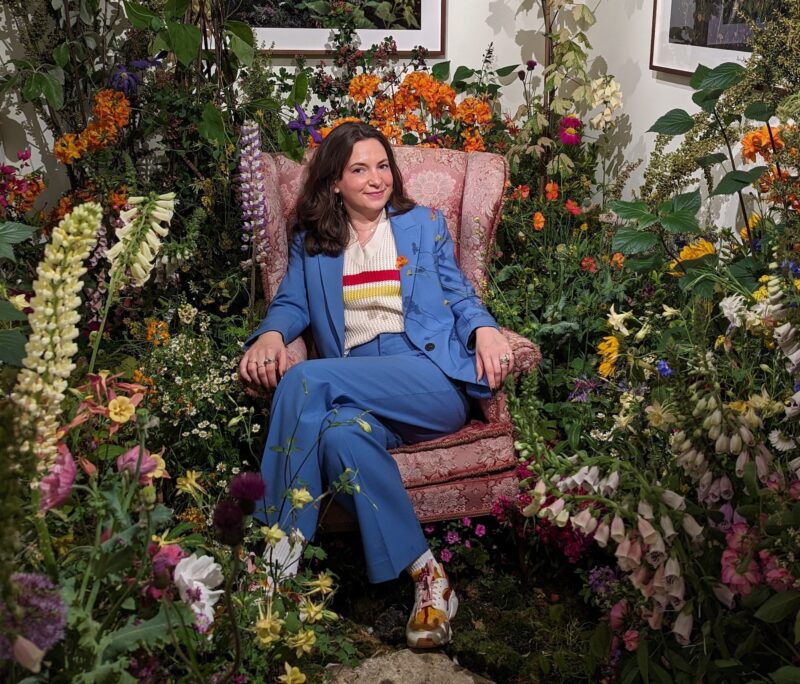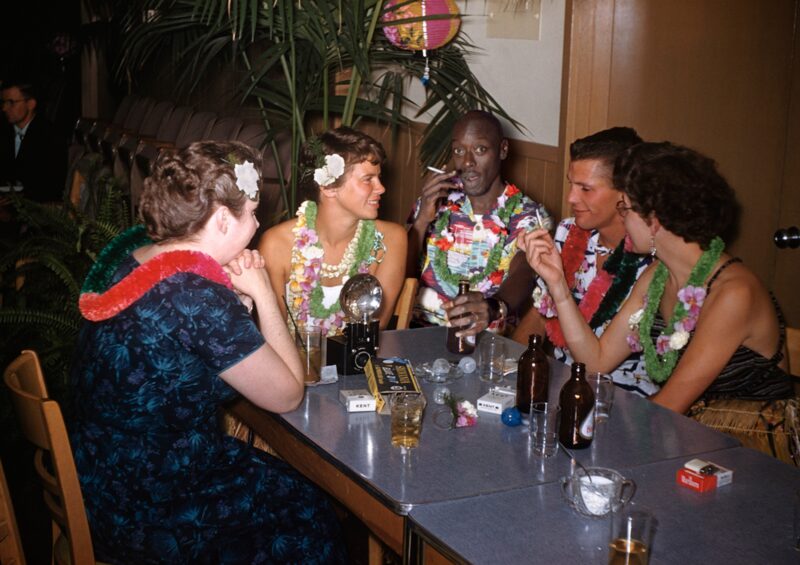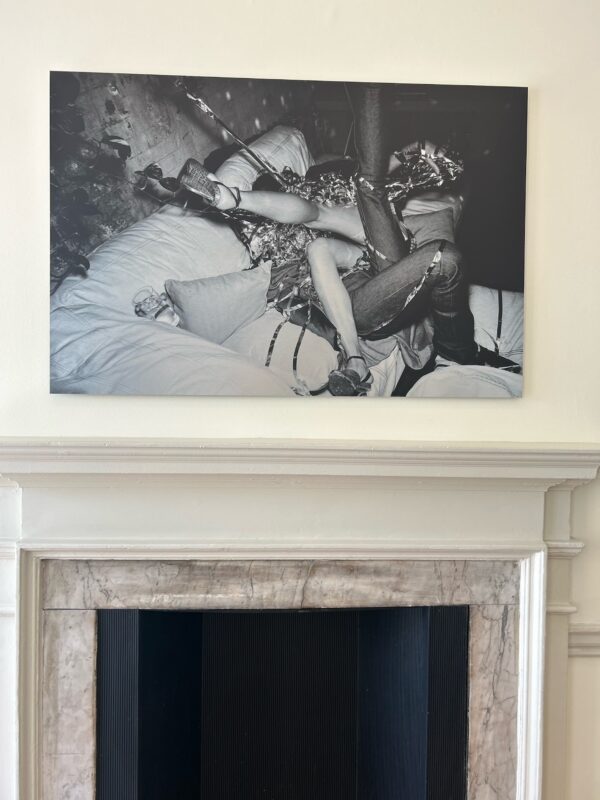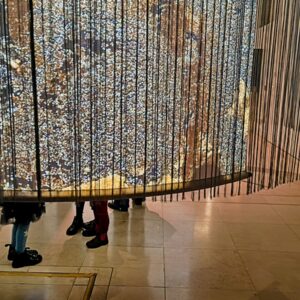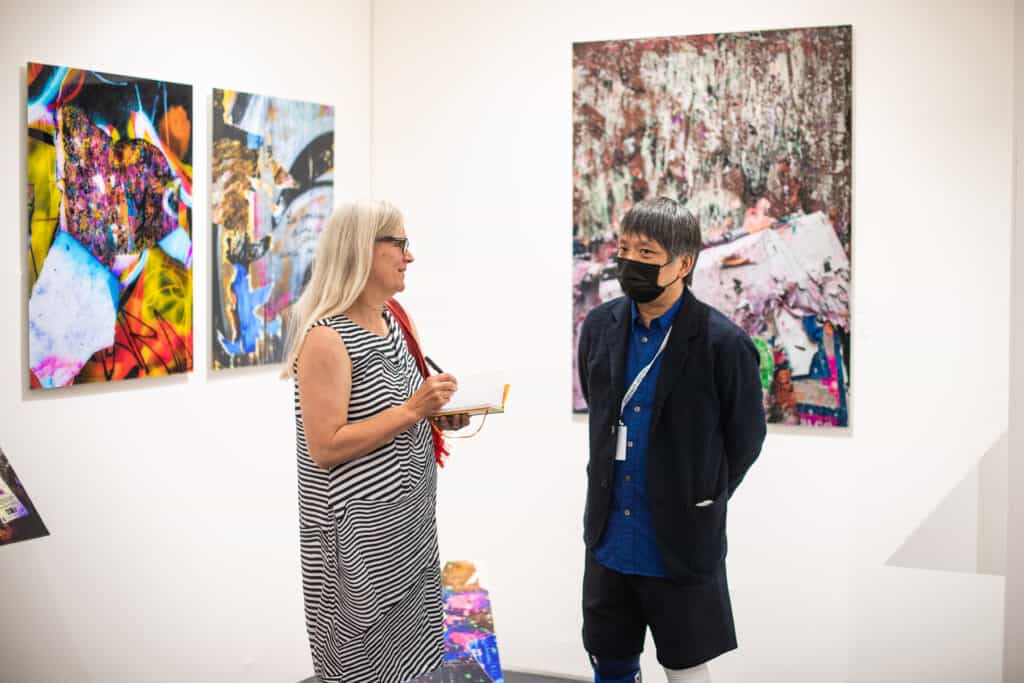
At first sight, Yusuke Akamatsu’s colourful and glossy prints evoke an urban, even playful aesthetic while titles like ‘The End of Tokyo Culture’ or ‘Everyone the Same’ hint at a deeper meaning. Yusuke Akamatsu is not a man of many words, preferring to do his storytelling in pictures instead. Meeting the artist at Photo London made me wish I could speak at least a little Japanese – and that I had more than just a superficial understanding of Japanese culture.
Then again, maybe this patchy knowledge of the more subtle aesthetics gleaned from vintage movies and visits to Japan House on the one hand, and a fascination with louder extremes of Banzai or Tamagotchi on the other, is a good entry point for unravelling Akamatsu’s work.
Most of the works on show at Photo London were taken in the French capital (and, no, he doesn’t speak French!). Often depicting remnants of advertisements, billboards and posters, the initial photographs are digitally manipulated and colourised to create painterly abstracts and surreal collages.
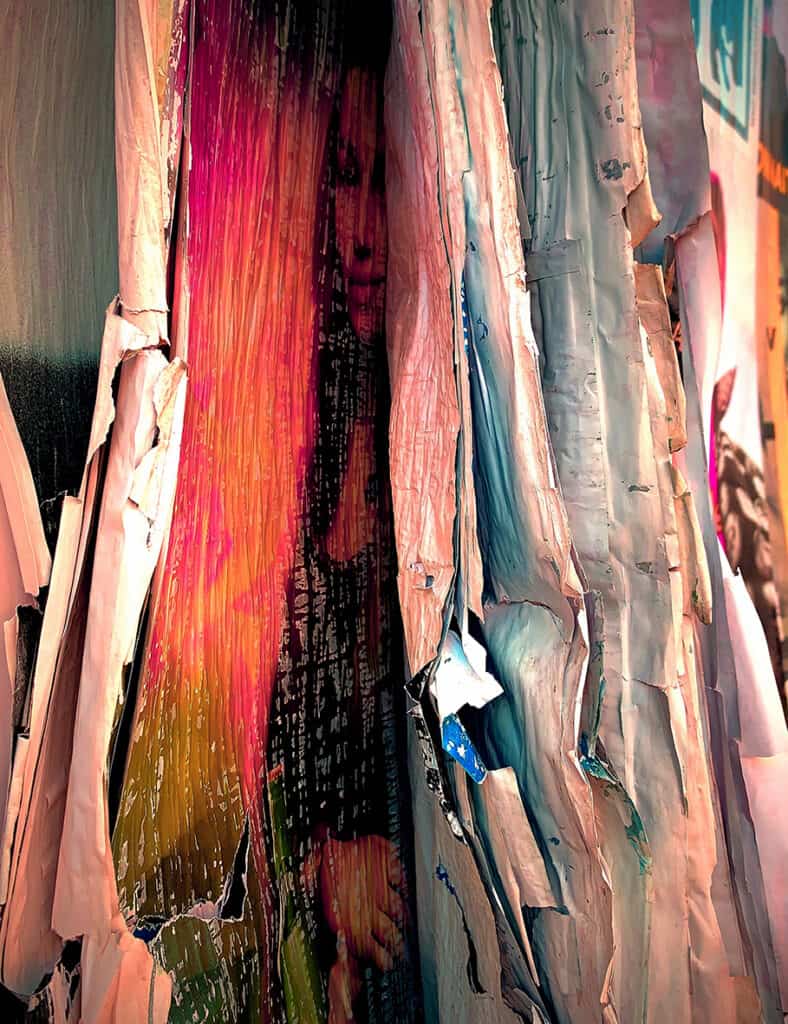
‘Assimilation’ is a photo taken in the immediate aftermath of a major fire. Rather than capturing the destroyed building, Yusuke Akamatsu zooms in on the remnants of glossy advertisements left behind by fire and water. Another image in the same series shows a hint of the iconic Mona Lisa peering at the viewer from behind thick layers of partially peeled back posters. Wabi-sabi has become a bit of a buzzword in recent years, and these works serve as very a modern take on transience and imperfection.
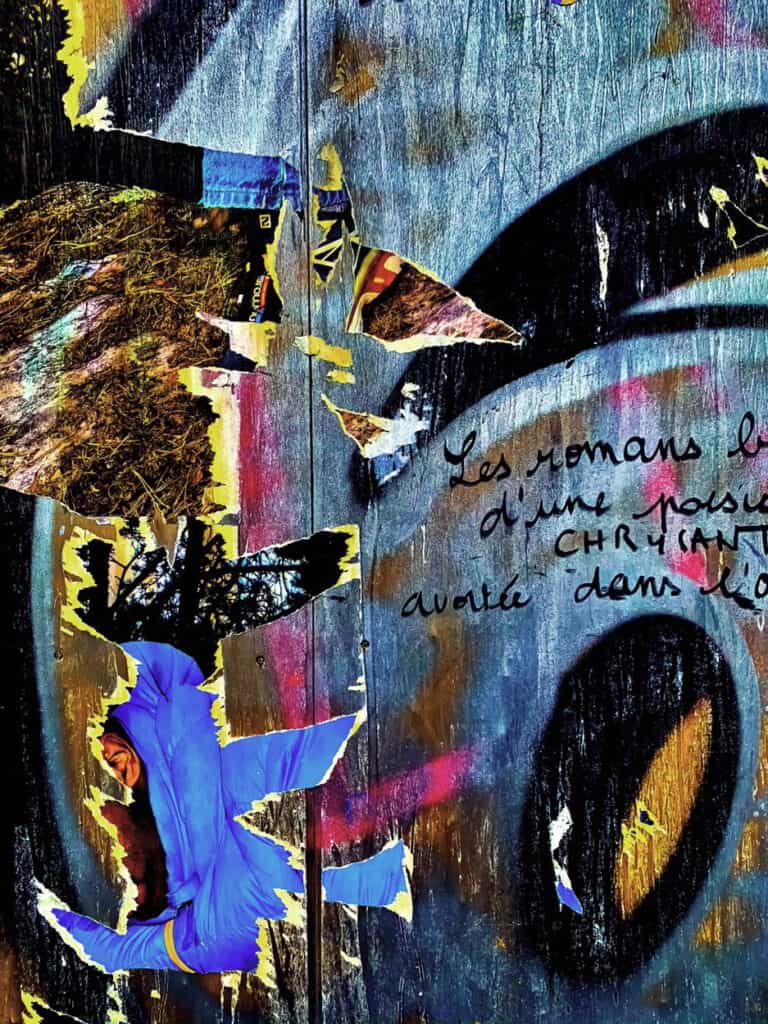
A personal favourite is ‘Division’, a random collage of torn posters that alludes at family rifts. A different variation of chance encounter is captured in a more conventional black and white photograph of a woman in a cafe – Yusuke Akamatsu passes at the same time every day to witness the woman in the same spot. Both works make your mind wander and wonder about the stories behind the people in the images.
He is outspoken in his criticism of a cultural decline in modern Japan and describes Tokyo as a decadent supermarket defined by a hypocrisy of polite smiles set against danger of gossip and even arrest.
Influenced by film noir and arthouse, and determined to leave his roots in the entertainment business behind he chose to move to the birthplace of photography and film noir. Akamatsu mentions that he captures moments of fear in his pictures, I wonder if it is fear of Paris following in the footsteps of Tokyo and losing its rich culture and style to consumerism and greed.
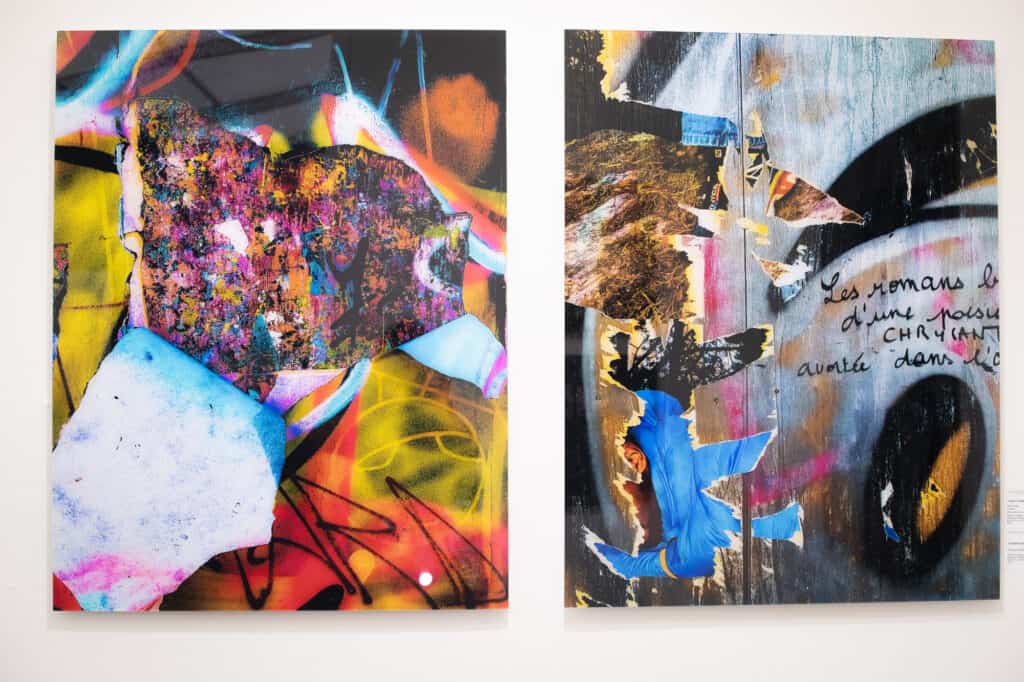
About Yusuke Akamatsu
Orphaned at 15 and with no family ties to his native Japan Yusuke Akamatsu left Tokyo in the early 90s. He looks back on a successful career spanning TV and radio productions, motion pictures and music videos, translating his observations of life in Hong Kong, Korea, Singapore, Thailand, Vietnam and Taipei into comedy popular with Japanese audiences. He was briefly married to a famous movie star in Taipei and succumbed to the allure of red carpets and paparazzi.
As mobile technology became more sophisticated, Akamatsu started experimenting with documenting his surroundings on his smartphone and was the first filmmaker to produce a feature length movie entirely shot on an iPhone (‘Sheep That Cannot Sleep’ was released in 2011).
